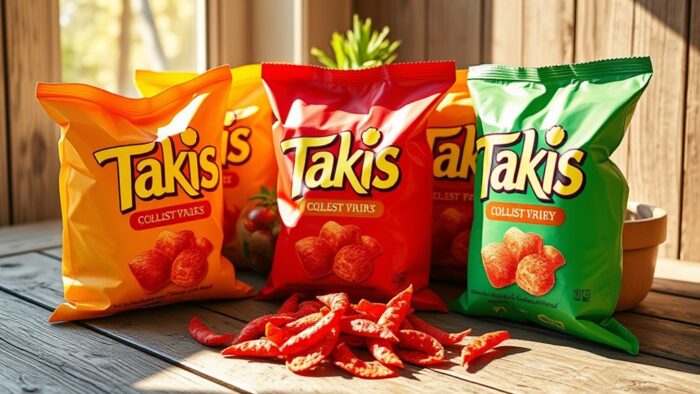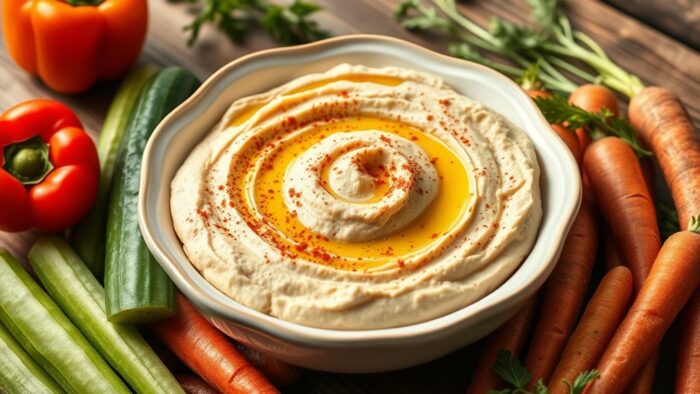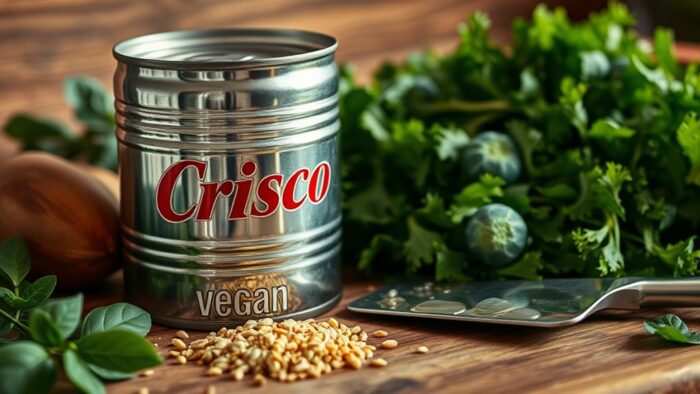Are Tortillas Vegan?
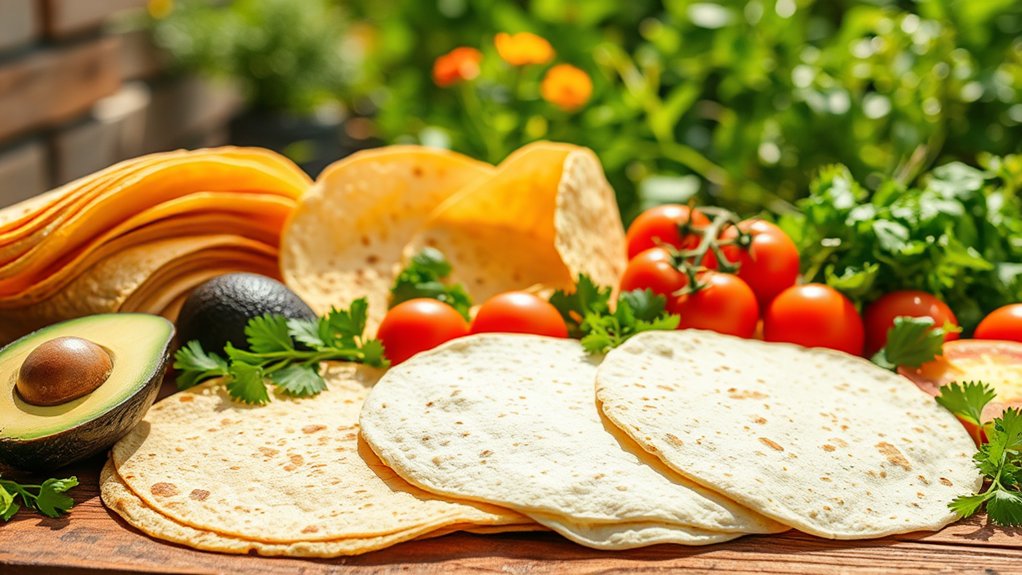
Are you wondering whether tortillas fit into your vegan lifestyle? It’s a common concern, especially with so many options out there. Tortillas may seem simple, but their ingredients can vary widely, and knowing what’s in them can make a big difference for your diet. Understanding the difference between corn and flour tortillas is key, and there are plenty of brands that cater to vegan preferences. But how can you be sure you’re making the right choice? Let’s dive deeper into the world of tortillas and discover what you need to look out for!
Understanding Tortillas: Types and Ingredients
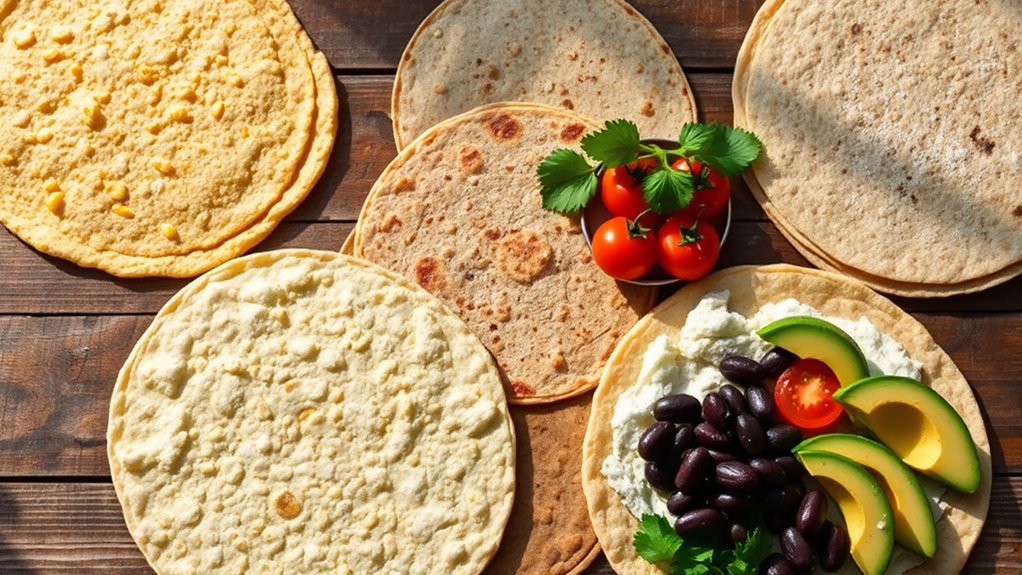
Tortillas are an essential component in many cuisines, particularly in Mexican and Central American dishes. They’re primarily available in two varieties: corn and flour.
Corn tortillas are made from masa harina, which is corn flour mixed with water and salt. This type of tortilla is naturally gluten-free, making it a suitable option for those with gluten sensitivities.
On the other hand, flour tortillas are made from wheat flour, fat, water, and salt, which means they do contain gluten.
When selecting corn tortillas, you’ll notice they come in various colors, such as white, yellow, and blue, depending on the type of corn used. It’s important to be aware that many commercially produced tortillas may contain non-vegan ingredients, such as lard or animal-based enzymes. Therefore, checking the ingredient label is crucial if you’re adhering to a vegan diet.
For those who want full control over their ingredients, making homemade tortillas is a straightforward option. By preparing them yourself, you can assure they’re free from any animal products and customize them to your taste.
Making tortillas at home can also be a rewarding experience, allowing you to appreciate the process and enjoy fresh, warm tortillas as part of your meals.
Vegan Vs Non-Vegan Tortillas
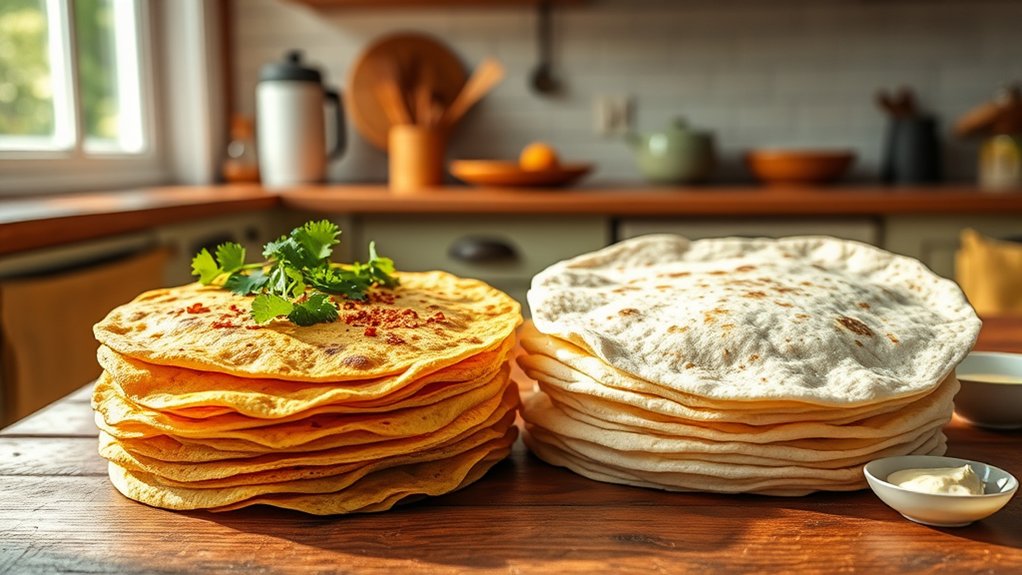
Tortillas are a versatile and popular choice for many meals, but whether they’re vegan depends on their ingredients. Generally, corn tortillas are a safe bet for those following a vegan diet, as they’re typically made from just corn, water, and salt.
However, flour tortillas can be more complicated. Many traditional flour tortillas contain animal fats like lard or butter, which make them unsuitable for vegans.
To confirm that flour tortillas meet vegan standards, it’s important to look closely at the ingredient list. Watch out for animal-derived ingredients, such as mono- and diglycerides, which are often used as emulsifiers.
Fortunately, several brands, including Mission and Guerrero, produce flour tortillas that are specifically labeled as vegan. Always check the packaging to confirm.
If you require a gluten-free option, be sure to verify that the ingredients align with your dietary requirements, as not all gluten-free tortillas are vegan.
For those who prefer complete control over their food, making homemade vegan tortillas is a great option. This way, you can assure that all ingredients are plant-based, resulting in a delicious and animal-free product.
Understanding the differences between vegan and non-vegan tortillas can help you make informed choices that suit your dietary preferences.
Key Brands for Vegan Tortillas
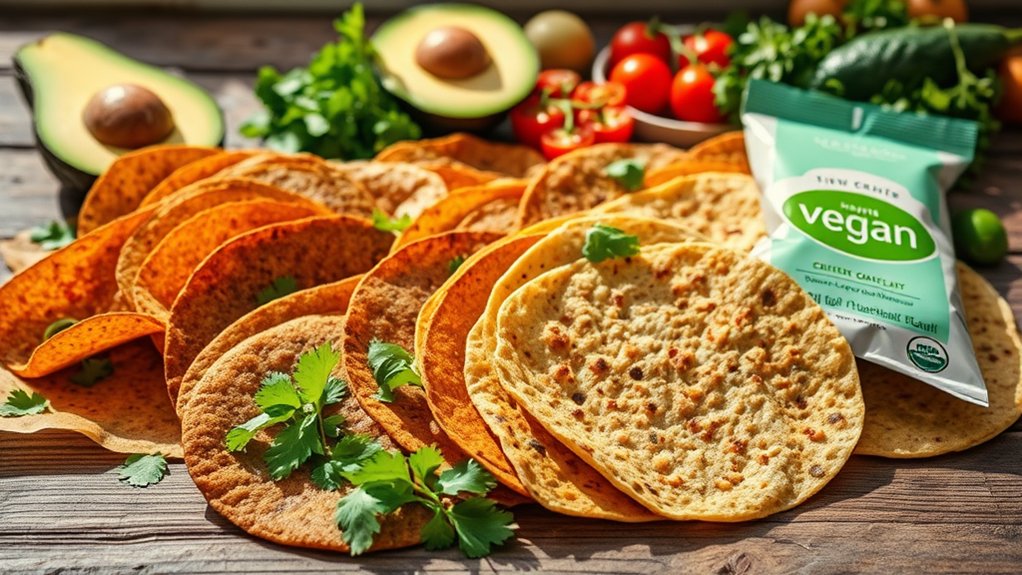
Navigating the options for vegan tortillas can be straightforward if you know which brands to consider. Here are three reputable brands that are generally regarded as vegan-friendly:
- Mission Tortillas: These tortillas are widely available and recognized for being vegan-friendly. However, it’s important to note that some strict vegans may choose to avoid them due to the presence of enzymes, which can be derived from animal sources.
- Guerrero Tortillas: This brand stands out because all their varieties contain vegetable-based mono- and diglycerides, making them a solid choice for those following a vegan diet.
- Old El Paso: While their hard shells and corn tortillas are typically vegan, it’s essential to check the ingredients on their flour tortillas, as some may contain non-vegan additives.
If you’re seeking whole wheat or plant-based tortillas, these brands offer reliable options.
Tortillas are primarily made from corn or flour, and many flour varieties can be vegan as well. This means you’ll find plenty of delicious options for vegan wraps and meals.
Always read labels to assure the product aligns with your dietary preferences, and enjoy analyzing the flavorful world of vegan tortillas!
Dining Out: Making Vegan Choices
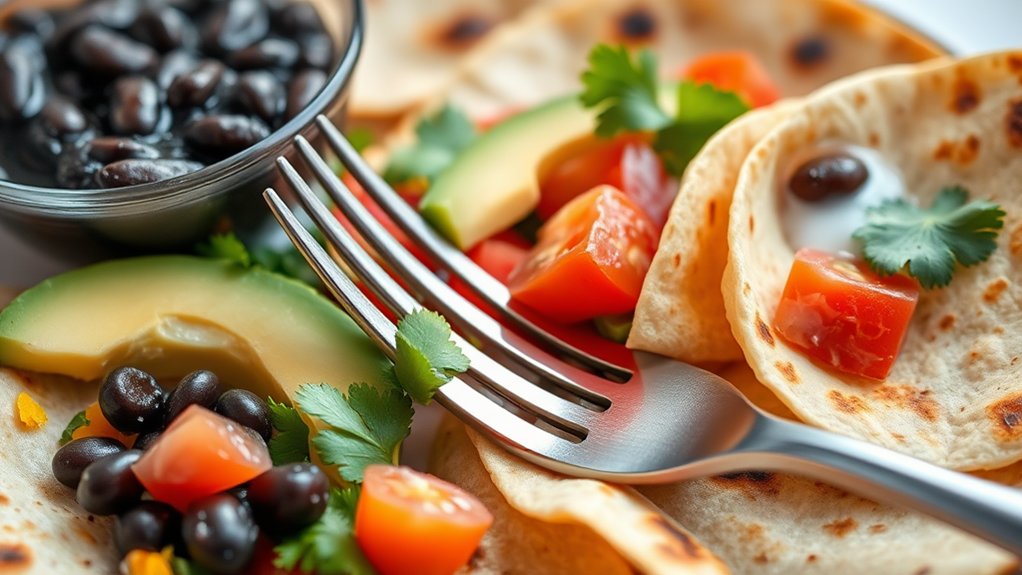
When dining out, making informed vegan choices is essential, especially when it comes to tortillas. It’s important to ask about the ingredients in flour tortillas, as some may contain lard or animal-derived enzymes. Fast-casual restaurants like Chipotle and Taco Bell offer vegan-friendly tortillas, making them good options for your meal.
However, many eateries don’t clearly label their vegan options, so it’s wise to inquire about potential hidden ingredients like butter or whey. Additionally, even store-bought tortillas may have animal-derived glycerin or mono- and diglycerides, so it’s worth checking the labels.
Engaging with restaurant staff helps clarify any doubts and assures that your tortilla choices align with your vegan diet. This approach not only increases your dining experience but also supports your commitment to ethical eating. By staying informed and asking questions, you can enjoy your meal while adhering to your dietary preferences.
Homemade Tortilla Recipes and Tips
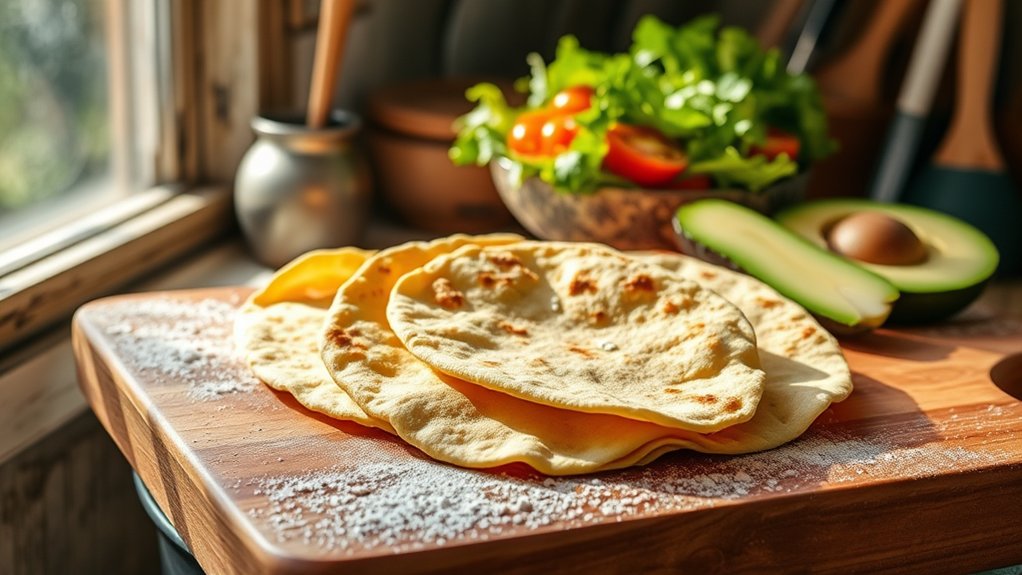
Making your own tortillas is a rewarding experience that aligns well with a vegan lifestyle. By using a few basic ingredients, you can craft soft and pliable tortillas that increase any meal. Here are some practical tips to improve your homemade tortilla-making process:
- Ingredients: Start with all-purpose flour, salt, baking powder, warm water, and vegetable oil. If you prefer gluten-free options, consider using chickpea or almond flour, which can yield tasty results.
- Dough Resting: Allow your tortilla dough to rest for at least 20 minutes. This resting period is crucial as it helps improve the texture of the tortillas, making them easier to roll out and more enjoyable to eat.
- Storage: To keep your tortillas fresh, wrap them in a tea towel and place them in a sealed plastic bag. This method can help maintain their quality for up to 10 days, allowing you to enjoy your homemade tortillas throughout the week.
Experimenting with various tortilla recipes allows you to cater to your personal taste preferences.
Whether you’re preparing tacos, wraps, or quesadillas, homemade tortillas can improve your culinary creations and provide a sense of satisfaction that comes from making something from scratch.
